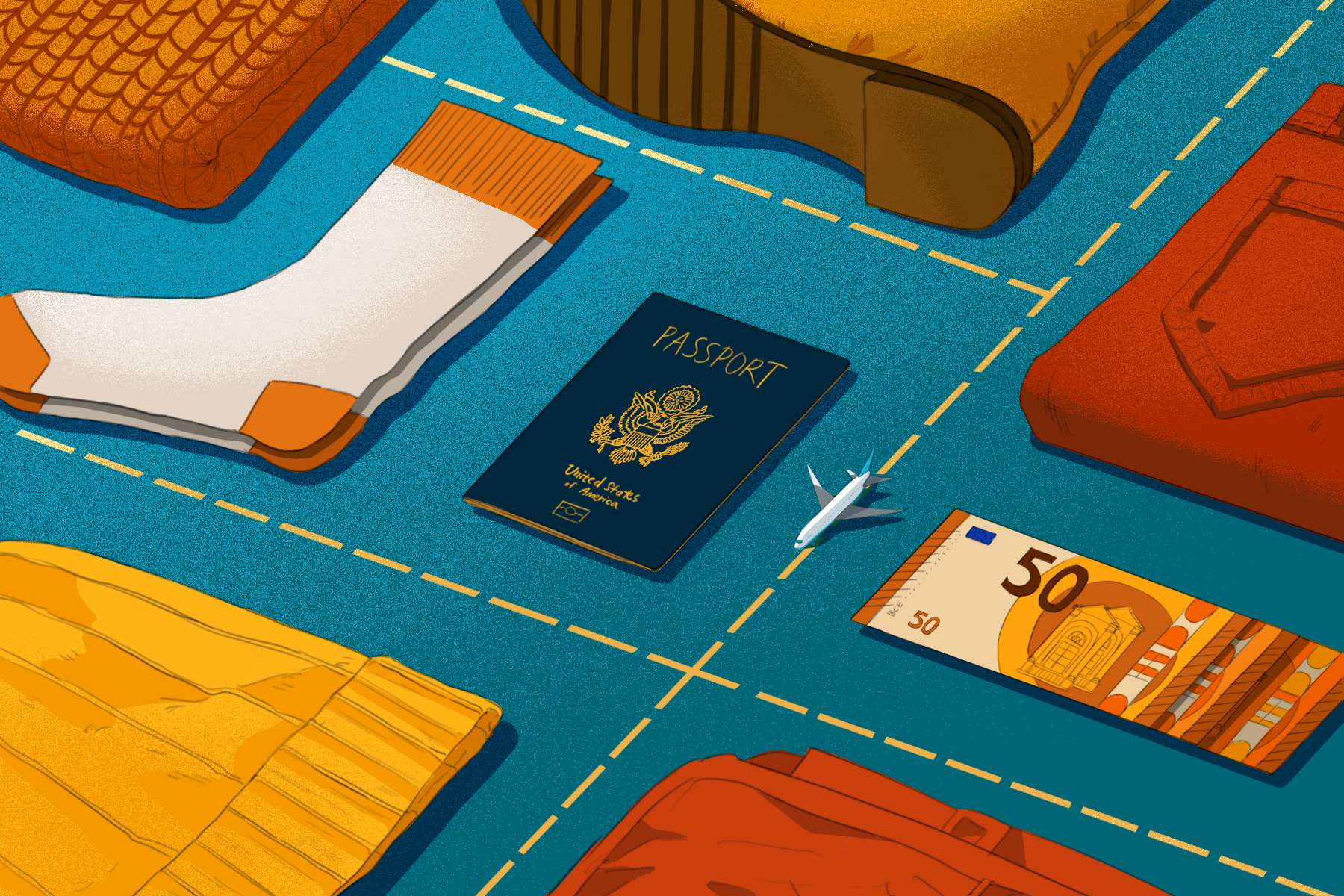Planning for a semester abroad can be summed into one word: STRESSFUL. From booking flights and finding housing to selecting courses that allow for an on-time graduation, students have a to-do list that is miles long. All these responsibilities make it incredibly easy for students to forget one of the most important preparations for a semester abroad — packing.
Luckily today, so many people have studied abroad that a plethora of lessons have been learned and a lot of advice has made its way to current students via the internet and hearsay. Here are some key packing tips for a successful semester abroad.
Check the Weather
Depending on when students study abroad, the weather will vary. Many tend to assume summer means hot, winter means cold and spring and fall are somewhere in between. However, it is extremely important that they remember that depending on what country (and where within that country) they are studying abroad, the weather may not be as expected.
Luckily, average weather by month of most (if not all) regions within different countries can be found through a simple Google search. For example, when searching “average weather Madrid, Spain,” the average high and low temperatures and the average number of days it rains is given by month. So, before even thinking about packing for their semester abroad, students should research the average weather patterns of wherever they are going in order to be properly prepared with the correct gear.
Use Google
According to the National Association of Foreign Student Advisors (NAFSA), 332,727 students studied abroad in the 2016 – 2017 academic year. Almost all possible success and failures when it comes to packing for a semester abroad have likely occurred already, and many of these tales have been documented on the internet.
Students might want to search things like “tips for studying abroad in X” or even more specific questions before embarking on their semester abroad. Likely, students will encounter blog posts, forums, travel websites and online magazine articles (such as the current piece) with helpful tips.
The internet can be extremely helpful when it comes to safety tips. For example, when searching “safest transportation in Madrid, Spain,” Google offers advice from a food tour website, Trip Advisor and many more sources that offer both general and specific advice. These simple searches can greatly impact students’ levels of safety when studying in their various countries. Similar searches on how to keep one’s bag safe or what to wear in certain cities will yield comparable results.
Bags
Thieves will find few easier targets than a foreigner trying to tote way too many bags around while simultaneously trying to navigate an unknown place. So, students should limit the number of bags they bring for their semesters abroad. Depending on their program, students are typically alone to navigate the airport and transportation to their program centers, universities, host families or apartments after disembarking the plane.
Students should be mindful of their abilities to transport all their luggage alone and with (relative) ease. No one wants to be that lost foreigner who is lugging around way too much stuff and who may not be totally proficient in the language. Students should do themselves a favor and limit themselves to one or two suitcases.
Students also should be extremely mindful when selecting an “everyday” bag to carry the necessary items they need for class, as well as a bag to carry around things like their wallets, phones and passports when they are not going to class. Not only should a school bag be large enough for any laptops, smart tablets, books and supplies one may need, but it should also be relatively “theft proof,” depending on where students are traveling.
In many European countries, travelers are warned of pickpockets, bag snatchers, credit card scanners and even thieves who will cut a bag open in hopes of valuable contents falling out of the bag. Students should choose bags that may be worn as a cross-body, has thick enough straps so it may not be easily cut, and should always probably have a hand on it .
At this point, many might be wondering how anyone is supposed to find a bag that is completely safe to carry around a city — especially one large enough to fit valuable laptops and tablets. Luckily, the world has reached levels of technology that make traveling much easier and safer.
There are luggage and bag companies, such as Pacsafe, that offer bags with lockable zippers and scan-proof and cut-proof material, making it difficult for thieves to steal anything from one’s bag. Students may want to consider investing in similar bags if they feel particularly anxious about being targeted.
Don’t Forget About Extra Traveling
Many students — particularly those spending their semester abroad in Europe — take advantage of the cheaper flights or train rides to other countries and cities they want to visit. They should do research for these places in addition to the city in which they are studying before packing. Yes, that means researching the weather, public transportation, safety and more. Who wants to be the obvious foreigner who forgot to pack a winter coat?
Students should also always have extra money on them (ideally in the correct currency) both in their host countries as well as in any countries they visit outside of where they are spending the bulk of their semester abroad. Emergencies happen, and having extra funds is always helpful in those situations.
The Main Takeaway
Spending months in a foreign country is scary, but it is significantly less scary when one is properly prepared. Not only should students be prepared for the weather and theft, but they should also be mindful of the culture in which they are immersing themselves.
Students should be respectful of any cultural differences between their host country and their home country and should attempt to adhere to them. Students don’t have to be perfect but trying can elevate one from simply being viewed as “that American.”
Blending into the culture is not only respectful of one’s host country, but it may also be an important factor in one’s safety. For example, a tourist with an “I Heart X” t-shirt, nine maps and a backpack screams easy target for pick pockets and thieves. Sure, this example is very extreme, but it holds a point. Blending in with the local people is not only important for one’s experience abroad, but it is also a vital factor in one’s safety when traveling to a foreign country.
















